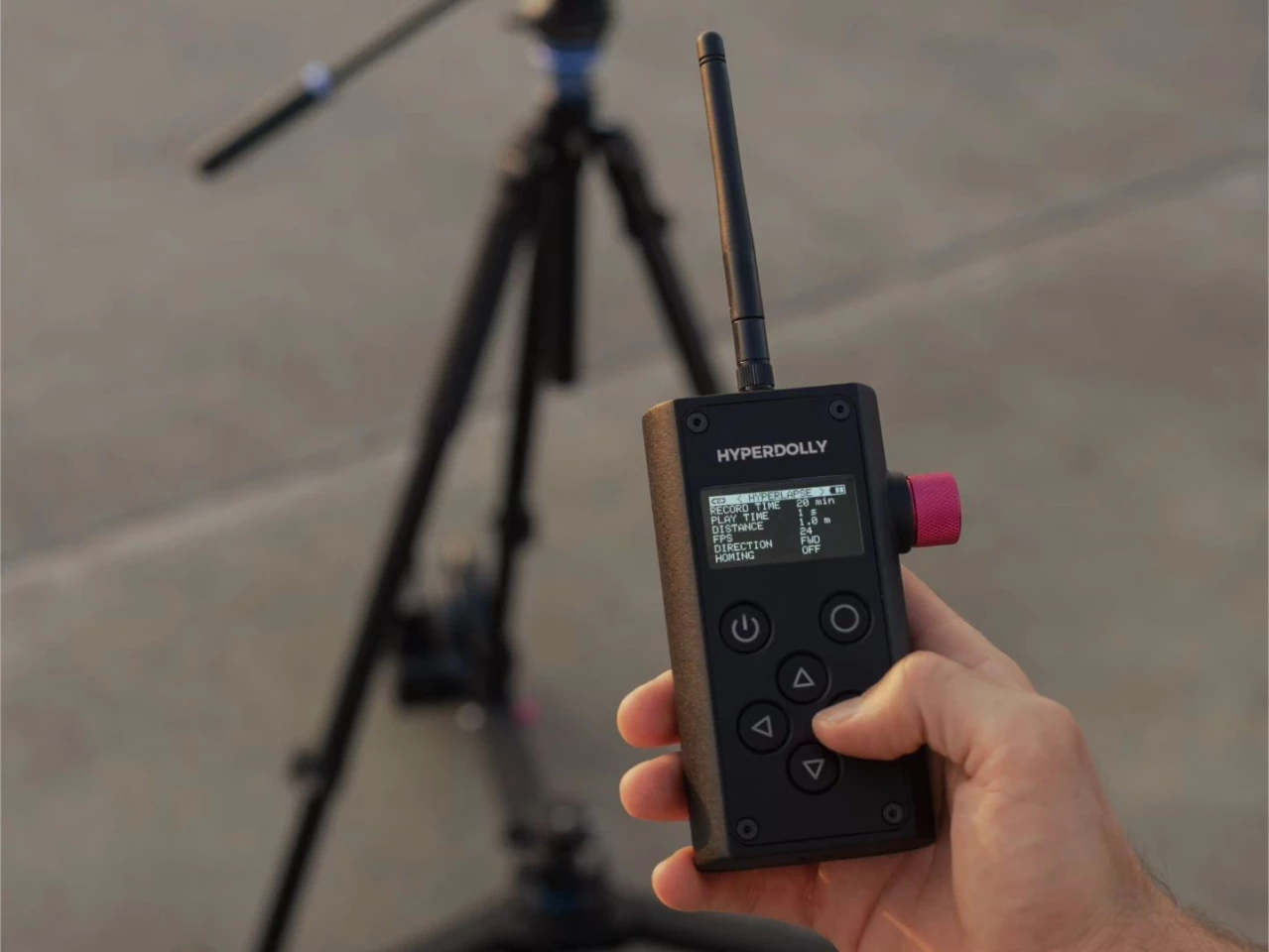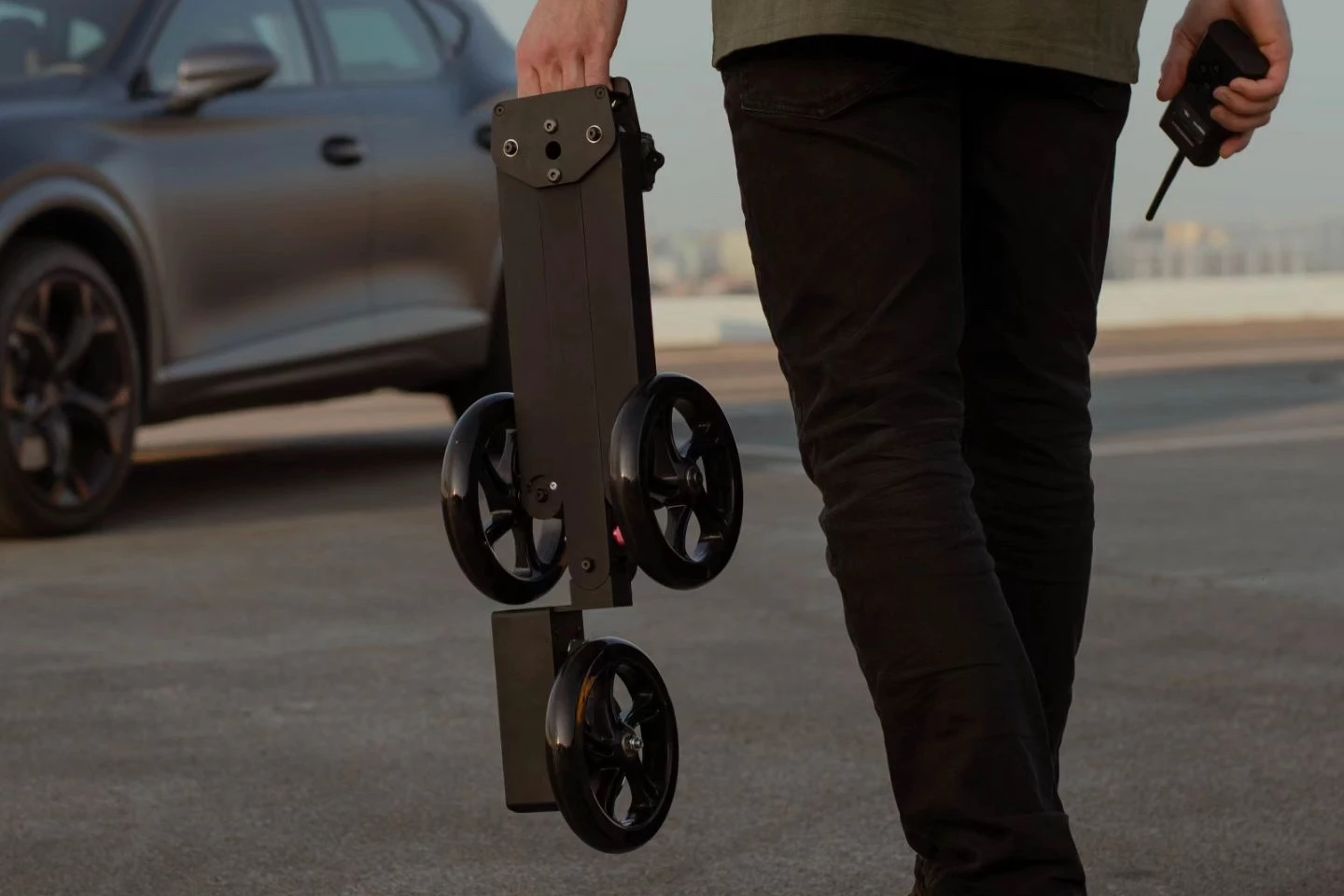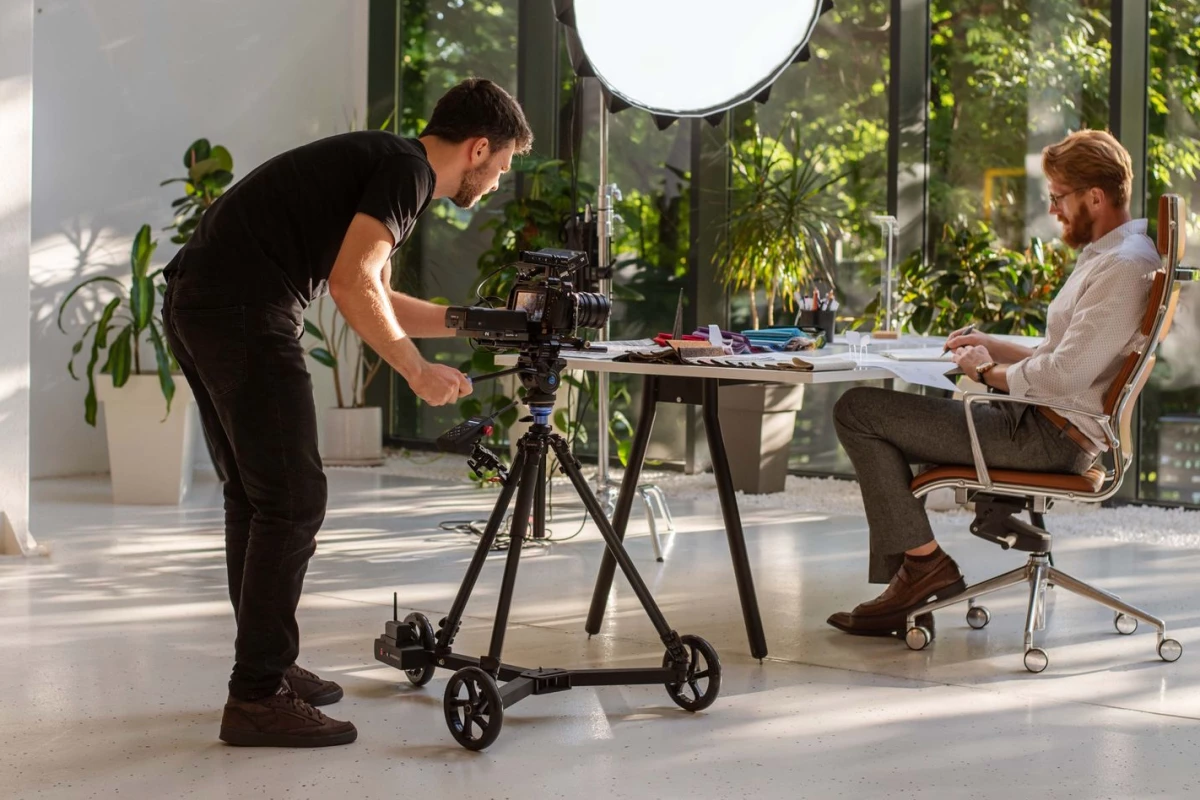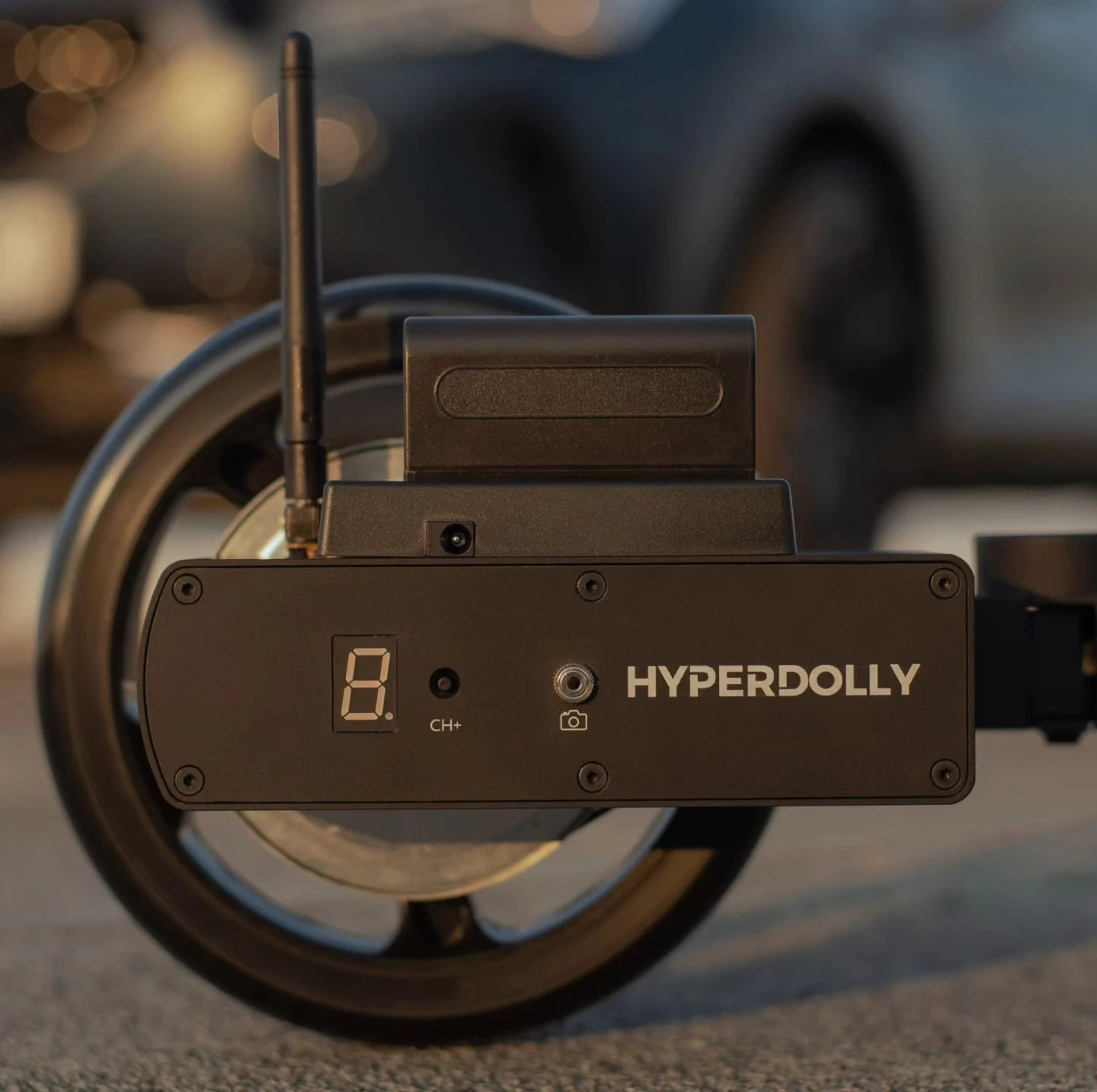Handheld gimbal stabilizers are all very well and good, but for really classy-looking cine camera movements, nothing beats a wheeled dolly shot. The Hyperdolly is designed to get those shots, without having to lay down any tracks.
Currently the subject of a Kickstarter campaign, the Hyperdolly was invented by Ukrainian filmmaker Andrii Statieva.
Putting it simply, the device is a wheeled tripod spreader with a high-torque electric stepper motor and soft silicone tires. Users mount their own camera and tripod on top of the thing, then proceed to utilize it on pretty much any smooth, flat surface.
An included 2.4-GHz handheld remote allows those users to control its speed and direction in real time, up to a range of over 100 m (328 ft) and a top speed of 27 cm (10.6 in) per second.

By turning an adjustment knob on the Hyperdolly's drive wheel, users can also set the radius of an arc for it to follow – this means they don't have to manually steer it through that arc themselves. As an added bonus, a brake automatically locks the drive wheel between shots, keeping the rig from rolling away.
The Hyperdolly can additionally be set to autonomously follow preprogrammed movement patterns.
These include Multi-Pass Mode, in which it repeatedly traces the same route (for multiple exposures, etc); Loop Mode, in which it continuously moves back and forth between two points (for keeping the shot interesting while shooting interviews); and Hyperlapse Mode, in which the Hyperdolly slowly moves the camera as the latter shoots time-lapse footage.

The whole thing reportedly tips the scales at 4 kg (8.8 lb), and is capable of carrying a maximum camera/tripod payload of 12 kg (26.4 lb). It can be folded up for transit and storage. One charge of the remote's two 14500 batteries is claimed to be good for five hours of runtime – it's worth noting that neither those batteries nor the dolly's single Sony NP-F battery are included.
Should you still be interested, a pledge of US$1,190 will get you a Hyperdolly of your own – assuming it reaches production, that is. The planned retail price is $1,700.
It's demonstrated in the video below.
Source: Kickstarter






